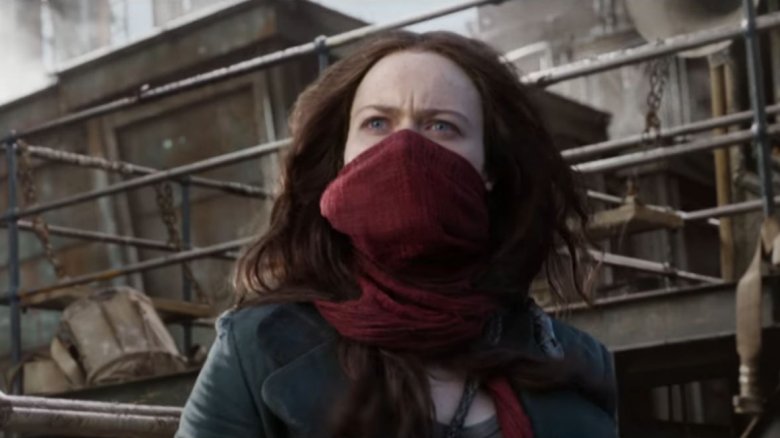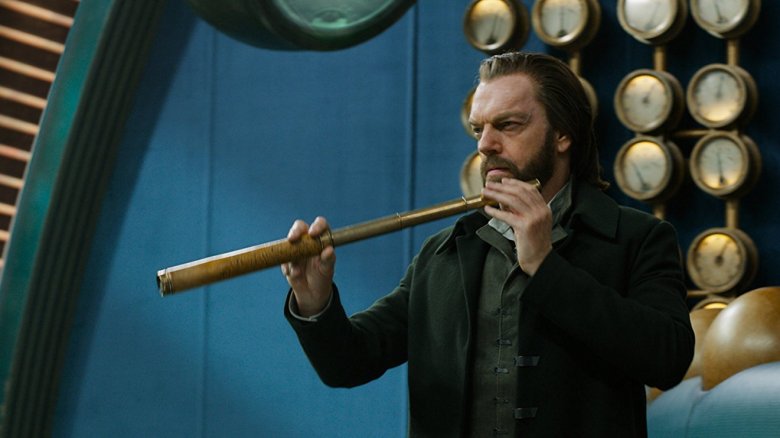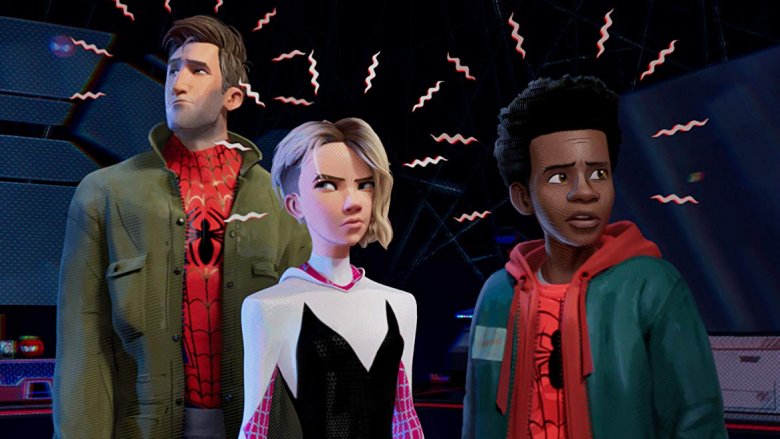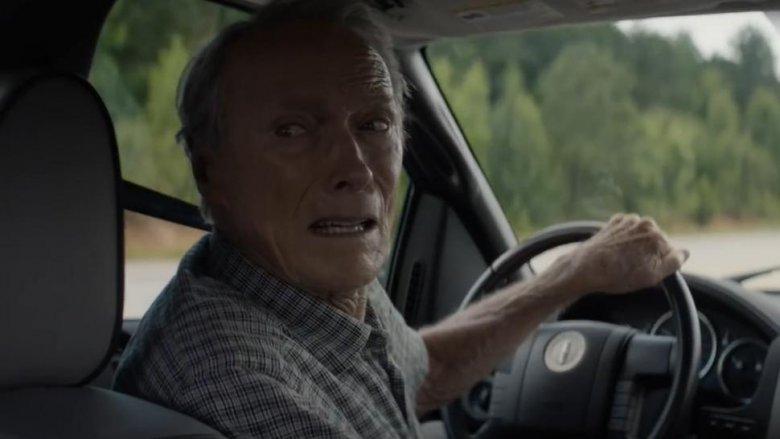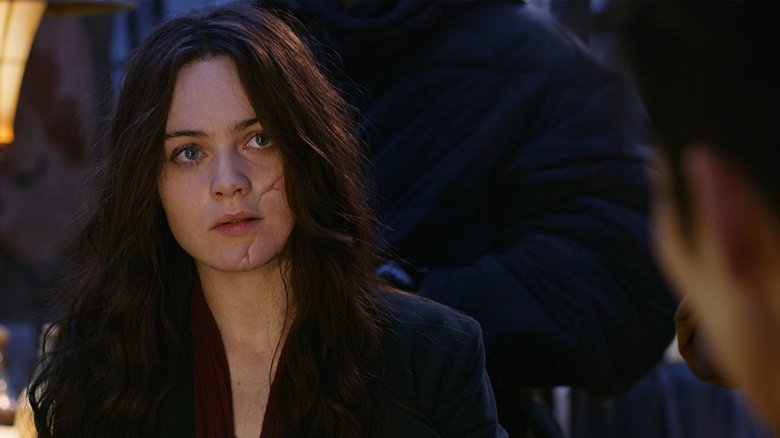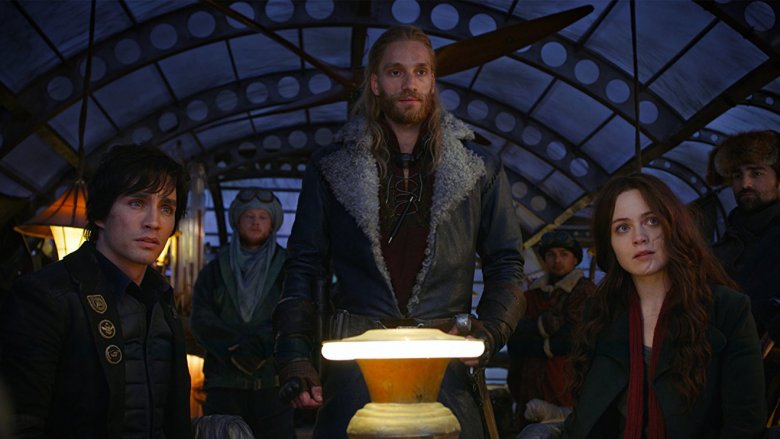Why Mortal Engines Bombed At The Box Office
A lot of guesswork goes into making a movie. Before a film is greenlit, and sometimes even before a script is written, producers and financiers will sit back and deliberate on whether or not an idea is worth investing in or not. They'll ask probing questions: Is this going to interest a wide cross-section of people? Is it relevant and interesting? Will it make us all our money back and more?
As budgets climb up into the eight-digit range, these conversations get even more important. If production companies are going to put up $100 million for a movie, then that movie better be as close to a sure thing as possible. There's a finicky, unpredictable aspect to the process — and sometimes people get it dead wrong.
Mortal Engines is an example of filmmakers making a complete miscalculation when it comes to what kind of movie general audiences want to see. It aimed to be a franchise-starting epic, but the grandest thing about it is turning out to be the scale of its failure. In other words, this "cities-on-wheels" movie didn't roll away with the box office. Here's how Mortal Engines became one of the biggest box office bombs of 2018.
The mortal what now?
Mortal Engines is based on the book of the same name by writer Philip Reeve, which launched a seven-book series of sequels and prequels after its publication in 2001. The story is a creative, post-apocalyptic narrative based around the premise of cities that are constantly in motion, roaming the world in competition with each other. These "traction cities," as they're called, practice a form of philosophy that's come to be known as "Municipal Darwinism," in which cities must compete for resources to survive, sometimes going into head-to-head conflict with each other like gigantic Battlebots.
The story of Mortal Engines centers on London, which roams a European continent that has come to be known as the "Great Hunting Ground." The protagonist of the story is a young woman named Hester Shaw, who wears a mask around her face to hide disfiguring scars she received from a previous encounter with the evil historian Thaddeus Valentine. With Valentine having also killed Hester's mother, she seeks personal vengeance against the villainous archivist, siding with the rebellious Anti-Traction League to both defeat him and return the world to a less violent way of living. In other words, there's a lot going on here.
City in ruins
Now that you know the whole premise, you can probably start to understand why this movie didn't do too well. What's the damage? After the movie's opening weekend, things look pretty bad — like, eight-digit losses bad.
While the exact budget for Mortal Engines isn't publicly known, it's commonly accepted in industry press as costing over $100 million, with Deadline reporting that the production budget alone may be well above $110 million. If we go by the rule of thumb that a marketing budget would be about half of that, that would indicate that over $165 million may have been invested into getting Mortal Engines up and running — and it seems like a lot of that money just ain't ever coming back.
Over the course of its debut weekend, Mortal Engines made only $7.5 million at the domestic box office across 3,103 theaters, a crushingly low number that saw the movie opening in fifth place. The film fared better overseas, bringing in nearly $35 million, but the combined total makes for an opening take of just over $42 million — in other words, around one quarter of what the movie cost to make and market.
Vs. the Spider-Verse
Mortal Engines' biggest competition wasn't just one superhero, but an entire squadron of them, with Sony Pictures' Spider-Man: Into the Spider-Verse topping the box office during the weekend of Mortal Engines' release with domestic earnings of over $35 million. Why did Spider-Man succeed where this movie failed? There are a lot of reasons.
It may seem arguable that Into the Spider-Verse is just as high-concept of a movie as Mortal Engines is, with the Spider-Man movie diving head-first into the potentially confusing realm of doppelgängers and alternate dimensions. (It doesn't help that the alternate universe Spider-People are wildly outlandish figures, with one being a talking pig, one being an anime girl who pilots a mech suit, and another being Nicolas Cage.) But Spider-Verse is more than just a story about a rift between worlds causing reality-bending chaos. It benefits from more than 50 years of Spider-Man history in pop culture, with the new animated feature being the sixth theatrical movie about the world of Marvel's webslinger. Though the movie itself is kind of out there — it really feels like one of the comic book-iest movies to ever get this wide of a release — it's linked to a core concept that audiences have proven time and time again that they'll turn out for.
You know what also helps Spider-Verse? The movie is extremely good, being both easily recommendable and compulsively rewatchable for kids and grown-ups alike. To its apparent detriment, Mortal Engines is neither.
The Mule and more
In a surprising development, Mortal Engines also faced heavy competition from the newest project from Clint Eastwood, the elderly man drug-smuggling caper film The Mule. Opening in second place with $17.2 million in domestic earnings, the movie is having one of the best financial performances of Eastwood's career as a director, according to The Hollywood Reporter.
But it wasn't only the other new movies that cleaned Mortal Engines' clock over the weekend. The fantasy was also soundly beaten by the one-two family movie combo of Illumination's The Grinch and Disney's Ralph Breaks the Internet, with both movies still holding strong after making their debuts more than a month ago.
Other big movies lingering in theaters that audiences are still catching up on include Creed II, Bohemian Rhapsody, and Fantastic Beasts: The Crimes of Grindelwald, with Once Upon a Deadpool — the re-edited, re-released version of the Deadpool sequel from earlier this year — also peeling away $2.6 million worth of viewers for itself. To put it simply, there's no shortage of decent movies to choose from this time of year, and while Mortal Engines may have distinguished itself from the rest of the pack with its weird premise, it thoroughly failed to make a case for theatergoers to actually see it.
Rotten reviews
Sometimes a movie can get away with wild success despite critical disfavor, such as the Transformers movies, or the runaway hit that was Venom. If audiences attach themselves to a story, then what the critics think about the movie's merits doesn't necessarily matter. But Mortal Engines proved a turn-off to audiences and critics both, with neither group able to find much to get excited about in its confusing-looking, big-budget extravaganza.
After its opening weekend, Mortal Engines sat at a mere 28% on Rotten Tomatoes, with 129 reviews being counted toward that less-than-stellar score. Writers referred to the movie as "wearying," "crummy," and "a giant slog," and while some found its world-building to be impressively executed, others found it convoluted and uninteresting. Even reviews that credited the movie for some impressive special effects noted that the story failed to justify the spectacle, leaving audiences with little in the way of relatable material to grab onto.
What's the story?
As you might surmise from the less-than-stirring, mostly perplexing trailers, Mortal Engines is a property that proved uniquely difficult to market. Even when you have the basic premise painstakingly explained to you, it's still not easy to entirely grasp what's going on here. It's just too high-concept, with every aspect of the explanation just begetting more questions.
This is less of a problem when marketing a book series. After all, books benefit from the allowance of pages and pages' worth of world-building, character work, and exposition. With the written word, you can just have crazy ideas like "roving cannibal cities" told to you in detail, and imagine what they look like in whatever fanciful ways your mind can conjure. But movies are a visual medium that have to sell themselves with intriguing posters, killer trailers, and concepts that could fit in a single sentence. For a story that's this out there, that's a pretty tricky proposition.
With the book series that the film is based on not having much popularity in the United States, Mortal Engines largely had to sell itself to audiences on the basis of its merits as a movie. And here's the thing: When you actually see these cities on wheels bearing down on each other in a movie trailer, your first reaction probably involves being very, very confused.
No star power
In discussing Mortal Engines' dead-on-arrival performance, Variety noted that the movie could have benefited from a more well-known cast. Instead, it's acted out by a group of relative unknowns, with the biggest names in the ensemble being the actors who play the villains, Hugo Weaving and Stephen Lang. There's no such familiarity on the good guys' side.
The movie is led by Hera Hilmar in the role of Hester Shaw, an Icelandic actress in her biggest role to date. Previously known for roles in Da Vinci's Demons, The Romanoffs, and Life in a Fishbowl, Shaw's appearance in Mortal Engines is her first attempt to anchor a big-budget tentpole feature, and some reviewers couldn't help but feel that she failed to rise to the occasion. Not that the script helped much, it seems. Glowering on a poster from behind a red scarf is one thing, but actually drawing people into this bizarre, confusing universe by sheer force of charisma? That'd be a high task for anybody.
Missing the moment
Mortal Engines was produced in part by Peter Jackson and Fran Walsh, with a screenplay by Jackson, Walsh and Philippa Boyens. It's a creative team that rang in the new millennium with their adaptations of The Lord of the Rings, making a stone-cold classic trilogy of movies that remain the gold standard for epic book adaptations. But whatever magic helped to elevate those films to Oscar-sweeping greatness failed to come into being with Mortal Engines, with the property simply failing to generate enough interest among audiences.
One part of the reason why the movie failed can be attributed to lousy timing when it comes to cinematic trends. Jackson originally purchased the rights to the story over a decade ago, when adaptations of young adult novels were more in fashion. Now the landscape is much different, with audiences apparently being less attracted to these stories than they used to be. Mortal Engines isn't the only movie of this genre to bomb this year; The Darkest Minds, released in August 2018, also proved a flop at the box office. But that movie had a much smaller budget, so its failure caused less damage.
As things stand after the opening weekend, it's hard to see a future in which Mortal Engines makes its money back. The premise proved a little too wild, the budget too ambitious, and the interest among audiences just apparently wasn't there. It's an unfortunate mix that seems to have doomed it to be not a franchise-starter, but instead a fascinating failure.

